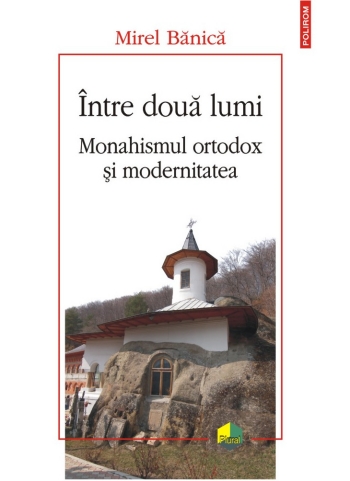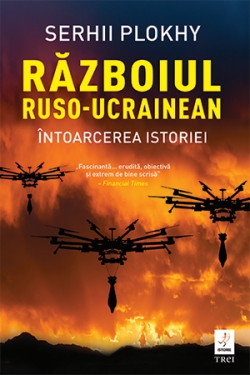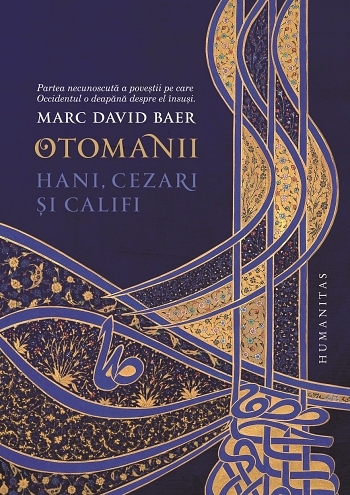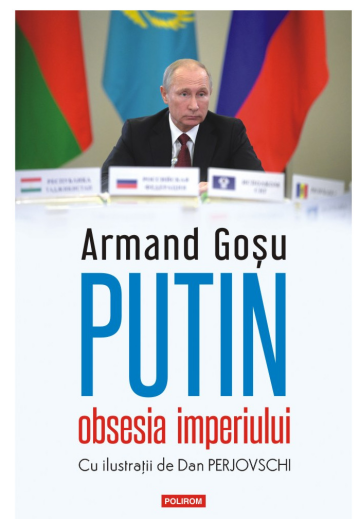Scriind despre Leszek Kolakowski, Tony Judt il numea ultimul mare cetatean al Republicii Europene a Literelor. Aceste cuvinte il definesc si pe regretatul profesor de la New York University. In revista “Tablet” a aparut un interviu luat de Matthew Kaminski, membru al board-ului editorial de la “Wall Street Journal” profesorului Timothy Snyder de la Universitatea Yale, despre volumul de dialoguri cu Tony Judt, intitulat “Thinking the Twentieth Century”. In curand va apare la Humanitas, cu sprijinul IICCMER, volumul “The God that Failed” (Zeul care a dat gres), una din cartile amintite, evident in context contemporan, in acest remarcabil interviu despre un ilustru intelectual public, un spirit pentru care nicio ideologie politica nu are dreptul sa se pretinda universal-izbavitoare, definitiva si infailibila. Recomand, din nou, cititorilor, volumul lui Mircea Mihaies, “Ultimul Judt”, aparut anul trecut la Polirom. Este o carte scrisa din suflet, rezultatul unei iubiri intelectuale autentice. Celor care l-am cunoscut indeaproape, de la Andrei Plesu, Silviu Lupescu, Theodor Paleologu si Mihai-Razvan Ungureanu la Anca Oroveanu, Marius Lazurca, Dorian Branea, Adriana Babeti, Mircea Mihaies si subsemnatul, Tony ne lipseste cat se poate de dureros.
http://www.polirom.ro/catalog/carte/ultimul-judt-4298/
Tony Judt a fost un ganditor liber, a spus multe lucruri adevarate, a spus si lucruri iritante pentru unii dintre prietenii sai. Despre adversari nu mai vorbesc, au fost legiune. Dar a facut-o mereu cu buna-credinta, fara urma de ranchiuna, de meschinarie, de fanatism ori de orbire partizana. M-am intrebat adeseori de ce a fost Tony Judt atat de generos in analizele sale cu Kolakowski si nu s-a manifestat la fel in raport cu Arthur Koestler? Cred ca, de fapt, era vorba de datoria intelectuala si chiar politica a lui Judt fata de Isaac Deutscher, istoricul britanic de origine din Polonia, biograful lui Stalin si al lui Trotki, autorul unei carti cu titlul „Heretics and Renegades” in care Koestler si Orwell erau priviti ca practicanti ai unui mysticism of cruelty. Pe scurt, asemeni lui Deutscher, lui Tony ii placeau ereticii, se mefia de cei pe care ii privea (eronat, cred eu) drept renegati, un temen insultator utilizat inca de Lenin la adresa lui Karl Kautsky. Spre onoarea sa, trebuie spus, cand David Cesarani a publicat o biografie a lui Koestler care mergea in directia character assassination, Judt a replicat devastator.
Structural non-conformist, adeseori iconoclast, Tony a respectat traditia intelectuala a disidenţei est si central europene. Dar nu a absolutizat-o, nu a fetisizat-o. Existǎ un eseu al sau, aparut prin 1994 in “TLS” in care, pe un ton cam sardonic, Tony Judt se referea la unii disidenti drept “umbre palide ale trecutului lor eroic”. Altfel spus, epigonii propriului trecut. La vremea aceea, am raspuns cu un text in revista ”Common Knowledge”, dezvoltat apoi sub forma de capitol in cartea mea “Fantasies of Salvation” (Princeton University Press, 1998, paperback 2009). Judecand retrospectiv, cred ca Tony Judt a avut (macar in parte) dreptate, nu eu. Eram pe atunci inclinat spre o anumita romantizare, preferam sa ma ocup de proverbiala jumatate plina a paharului, desi erau destul de spus despre cealalta jumatate. Adaug ca, desi cartea mea includea o polemica la adresa pozitiei sale, Tony Judt a scris superlativ despre ea.
Cartea sa “Past Imperfect” despre intelectualii francezi si pasiunea comunista ramane, sunt convins, unul din reperele durabile ale luciditatii dintr-un secol al atator iluzii, naluciri si abdicari. La fel, recomand “The Burden of Responsibility”, acel omagiu adus celor trei intelectuali, spectatori angajati (unul chiar a devenit premier in timpul Frontului Popular): Raymond Aron, Leon Blum si Albert Camus.
„Thinking the Twentieth Century,” the last book by the late NYU historian and intellectual provocateur Tony Judt, is the product of an unusual collaboration. Before Judt was diagnosed with Lou Gehrig’s disease in the summer of 2008, he was planning to follow up Postwar, a now canonical account of Europe since 1945, with a history of 20th-century social thought. But the incurable neurological disorder made it impossible for him to write.
Yale historian Timothy Snyder, author of the critically acclaimed „Bloodlands: Europe Between Hitler and Stalin,” and a longtime friend of Judt’s, suggested that Judt talk the book out with him, instead. Most Thursdays, for most of 2009, Snyder visited Judt’s apartment in Manhattan’s Washington Square and recorded their conversations. The men worked on the final product until a couple weeks before Judt’s death in August 2010, at the age of 62. The result mixes history and ideas, Judt’s personal journey from a young Zionist to a lapsed Marxist, and current politics. Each chapter—from the first, on Judt’s Jewish upbringing, to the last, in which he makes his argument for a renewed social democracy—begins with an extended biographical section in Judt’s words, followed by a dialogue between him and Snyder, who asks questions and offers his own thoughts.
Judt’s mind and elbows are as sharp as ever. At turns, he is biting about colleagues and ex-wives, the political right, and—no surprise to those who followed his political writing—Israel. Judt gained wide notoriety for a 2003 New York Review of Books essay that argued that to remain a democracy, Israel needs to morph “from a Jewish state into a binational one.” The New Republic subsequently dropped Judt as a contributing editor, and Judt’s career as a Francophonic, British, Jewish, New York public intellectual, so to speak, flourished. I sat down with Snyder last week in New Haven to talk about Judt, their friendship, and their new book.
A “spoken” book comes with its own logistical challenges, but this also must have been emotionally challenging. You befriended Tony Judt, who was 21 years your senior, when you were an undergraduate at Brown. As you note in the foreword, every time you saw him during the course of writing the book, he seemed to deteriorate physically.
The important thing is that it wasn’t primarily a challenge for me. It was primarily a challenge for Tony. He’s the one who’s now in the position that in order to work he has to talk instead of write. He’s the one who instead of being humiliated, chooses to be humble and to accept that working with someone else might be a good idea. That he chose to overcome utterly horrible physical limitations in order to keep working at his ideas, and that he did so extremely well, transcending not only his condition, but in my view some of his previous intellectual limitation—that, for me, is the truly remarkable thing.
This kind of collaborative book is common in Central Europe and France. You call the Polish poet Czeslaw Miłosz’s interviews with the writer Aleksander Wat, „My Century,” the best of the “spoken” genre, and the first book that Judt ever read in Czech, which he learned in middle age, was Karl Capek’s conversations with the Czech statesman Tomáš Masaryk. Why is it so rare in America?
It’s a matter of really being able spontaneously to call up the best in yourself, on both sides, over and over and over again, without preparation. It’s harder than it looks. Tony not only had a fantastic memory, but he could recall almost at will what was in that memory. I don’t think Americans are generally that articulate—I say this as an American. I don’t think very many of us could do this sort of thing.
Was it a form of psychological relief?
I think it allowed him to be him, at least for a moment. The Tony who was immobilized and certain of death was in many ways a different person who hadn’t been immobilized and certain of death. But our long conversation was a way for him in his new situation to express himself and to continue to work, and to continue to think, and to continue to progress. I think he really would forget the breathing apparatus, he would forget the immobility, for a time. I think there were moments when, because he was only in his mind, his mind was all that mattered to him.
Judt grew up in a working-class London Jewish home. His academic work was primarily on France. And he spent the last two decades of his life in New York. Yet did Judt have an essentially English mind?
It was a Jewish mind, and Jewish history, recent Jewish history, was always at the back of it. And it was a contestatory mind. He described himself as an outsider, and the default way he could be an outsider was his Jewishness. Even if he didn’t stress it, it was the safe, haimish way of being an outsider.
It was an English mind in that he had an English education and loved the English language. This was one of the ways in which he was conservative. He was the product of a very conservative educational system—almost reactionary I would say—all the way through. And that was one of the reasons why he was so confident with language, not only personally, but also confident about what the language could do, the purposes it could serve, how far you could take it. Like Churchill, he had faith in the transformative capacity of language. It was worth making arguments correctly and well because it might actually make a difference.
It was a French mind in that it was dialectical. He believed in argument. He believed in sacrificing friendships for ideas. It was a polemical mind, but only because he believed that ideas really were the world and that argument could bring us closer to understanding.
It was an Eastern European mind in a 1989 sort of way, a pluralist way. He accepted that no matter what the historical suffering in your life was (Jewish mind), no matter how precise formulations were (English mind), no matter how powerful your ideas were (French mind), there was in fact no one right answer to everything. That if you are going to be decent and responsible and fundamentally correct, you have to be a pluralist.
And finally, it was an American mind at the end in that he understood that optimism [is] our default mode of thinking; “it’ll work itself out, the market will take care of it, history will take care of it, our good faith will take care of it.” Understanding that national tendency, he knew what he was working with and against, and was critical and clear in a way that resonated here, whether or not people agreed with him.
Tony came to think of himself as a public intellectual. What’s the job description?
It’s something he kind of backed into, and he wouldn’t have embraced the term so comfortably. Normally when we talk about intellectuals we talk about a common formation, common experiences, and so on. He did a pretty good job of not sticking with experiences of everyone else. You can’t say there was the Tony Judt school or the Tony Judt agenda. He was a loner, and he was often criticizing the people with whom you might think he would have shared the solidarity of a milieu.
The classic example of that is the Iraq War, when a lot of people, also of Jewish origin, also of the left, also of the generation of 1968, were making one kind of argument and he was making exactly the other sort of argument with all sorts of political and personal results. So, he was definitely an intellectual, but he was an intellectual by not being with other intellectuals—just as that vocation itself was tumbling toward collapse.
He wasn’t afraid of what other people thought. He puts his points very sharply. He tried very hard to be his own man, which is a lot harder than it sounds.
Pentru textul integral:
http://www.tabletmag.com/jewish-news-and-politics/91856/arguing-the-world/?all=1
PS Exista o carte de Tony Judt care nu a aparut in engleza, ci doar in romaneste. Se intituleaza “Europa iluziilor”, volum coordonat de Daciana Branea si Ioana Copil-Popovici, eu am scris prefata si Dorian Branea postfata (Polirom, 2000). Cartea include intensele dialoguri purtate de profesorul Judt cu membrii grupului ” A Treia Europa” din Timisoara, un admirabil nucleu intelectual initiat de Adriana Babeti, Mircea Mihaies si Cornel Ungureanu. Sunt publicate si cateva dintre cele mai semnificative eseuri ale lui Tony Judt din „New York Review of Books”. Cred ca ar merita re-editata, sunt acolo idei si analize de o mare actualitate. Iata un scurt citat: „…exista mai multe adevaruri, nu doar unul singur. Va amintiti de mica fabula a lui Isaiah Berlin despre vulpe si arici. Vulpea are o multime de idei, in timp ce ariciul are una singura, (o fabula–VT) extrasa din autorii clasici greci. Nu te poti juca de-a ariciul cu Europa Centrala„.







 Aikido cu mintea si corpul coordonate. Invatati cum sa va relaxati si cum sa va pastrati calmul in conditii de stress.
Aikido cu mintea si corpul coordonate. Invatati cum sa va relaxati si cum sa va pastrati calmul in conditii de stress. 
Interesting link between „Jewish mind” and „historical suffering in life”. Could it be then that, e.g., Edward Said had a „Jewish mind”? Is historical suffering an apanage of the Jews? Is suffering the single most important trait of Jewishness?
Tony Judt a fost un om exceptional si multumesc dlui Tismaneanu ptr acest articol, ptr readucerea aminte a lui Tony Judt. Am citit citeva carti ale lui si abia astept sa o citesc pe ultima, cea vorbita si nu scrisa.
Sper ca volumul sa apara in romaneste pana la sfarsitul acestui an. In iunie va apare la Humanitas cartea lui Timothy Snyder, „Bloodlands”. Exista o carte de Tony Judt care nu a aparut in engleza, ci doar in romaneste. Se intitulaeaza „Europa iluziilor”, volum coordonat de Daciana Branea si Ioana Copil-Popovici, eu am scris prefata si Dorian Branea postfata (Polirom, 2000). Cartea include intensele dialoguri purtate de profesorul Judt cu membrii grupului ” A Treia Europa” din Timisoara, un admirabil nucleu intelectual initiat de Adriana Babeti, Mircea Mihaies si Cornel Ungureanu. Cred ca ar merita re-editata, sunt acolo idei si analize de o mare actualitate. Ganduri bune.
http://www.polirom.ro/catalog/carte/europa-iluziilor-537/
Am mare stima pentru cei care practica exercitiul livresc al ideii.Sunt convins ca ideea este cea care misca lumea. Dar veneratia mea merge catre cei capabili sa traiasca in idee. Spatiul mioritic nu pare a fi prielnic acestei specii. Lucru care se vede.
Dle. Tismaneanu,
De ce oare n-ati publicat si intrebarea mea cu privire la „Jewish mind”? Nu e nici pe departe o remarca anti-semita ci din contra, o incercare de a intelege generalizarile si aducerea la acelasi numitor ale unor individualitati foarte diferite.